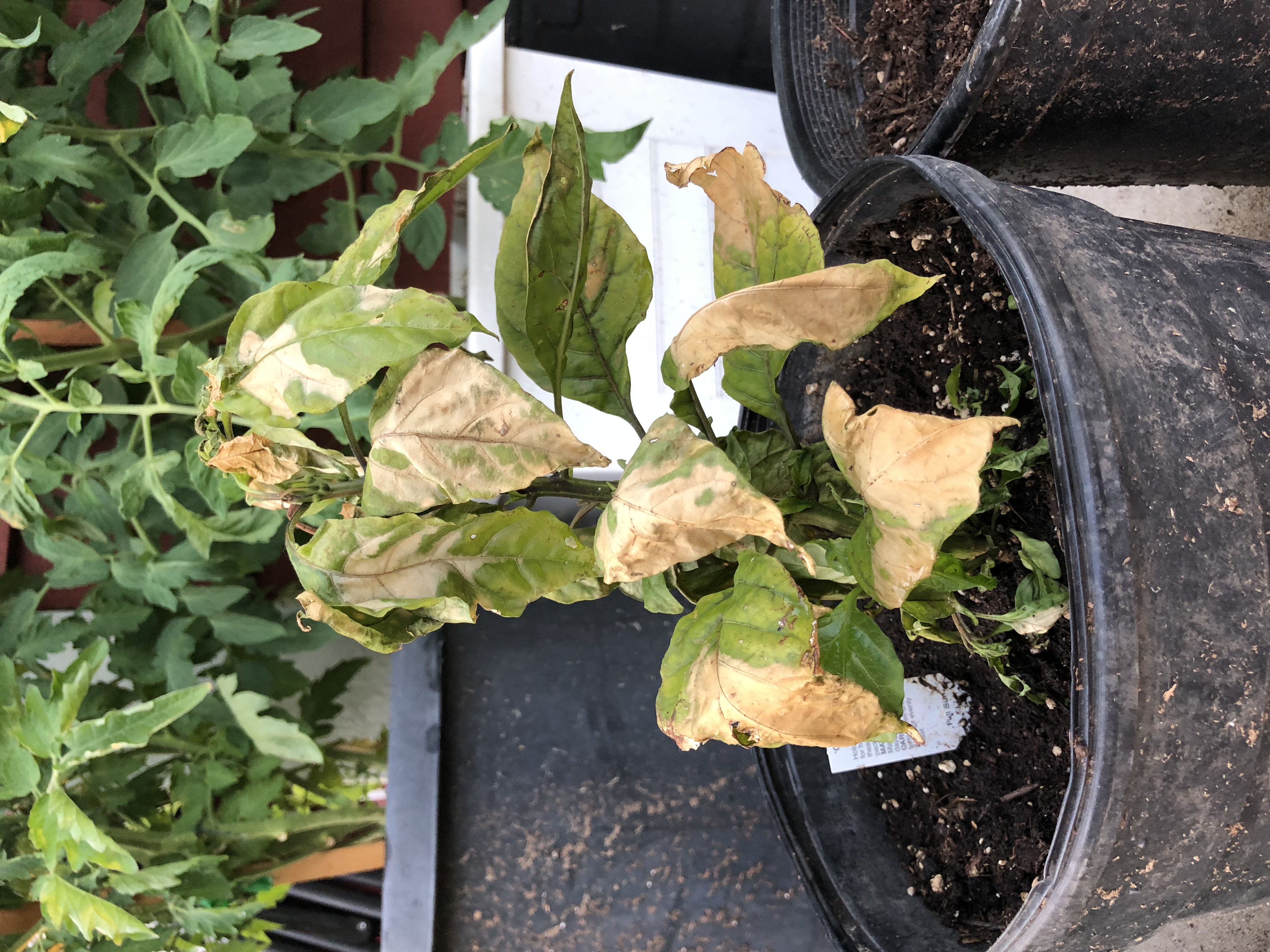Best Fertilizers for Peppers: Accomplish Superior Results in Your Garden
Best Fertilizers for Peppers: Accomplish Superior Results in Your Garden
Blog Article
Organic Vs. Synthetic Fertilizers: Which Is Best for Supporting Healthy And Balanced Pepper Plants?
In the world of nurturing healthy pepper plants, the choice in between synthetic and natural fertilizers stands as a crucial choice with significant ramifications. While both options purpose to give necessary nutrients to support plant growth, the subtleties of their effect on the soil, plant wellness, and the atmosphere spark a debate that mirrors throughout the gardening community. Recognizing the unique advantages and possible mistakes of each fertilizer kind is important for pepper growers looking for to optimize their returns while preserving a sustainable and eco-conscious approach.
Advantages of Organic Fertilizers
Organic plant foods provide an environmentally-friendly and sustainable method to beneficial pepper plants, giving necessary nutrients without making use of synthetic chemicals. These all-natural fertilizers are obtained from natural sources such as garden compost, manure, bone meal, and algae, advertising soil wellness and biodiversity. Unlike synthetic plant foods, organic choices launch nutrients slowly, guaranteeing a constant and balanced supply for pepper plants to grow.
One considerable advantage of organic plant foods is their capability to improve soil framework and water retention. By improving dirt health, natural fertilizers promote beneficial microbial activity, which assists in nutrient uptake by pepper plants. Additionally, natural fertilizers lower the danger of chemical run-off, protecting water resources from pollution and safeguarding the setting.
Moreover, organic fertilizers add to lasting soil fertility by promoting the development of beneficial soil microorganisms. These organisms assist damage down natural issue, releasing nutrients in a form that is quickly available to pepper plants. best fertilizers for peppers. By cultivating a healthy and balanced dirt environment, natural plant foods support sustainable pepper growing methods that profit both plants and the setting
Drawbacks of Synthetic Fertilizers
Synthetic plant foods, in comparison to their natural counterparts, position different drawbacks when used to nourish pepper plants, impacting both plant wellness and ecological sustainability. One major disadvantage of synthetic plant foods is their propensity to leach nutrients from the soil quickly.
In addition, the overuse of artificial fertilizers can add to water contamination. Excess fertilizers not soaked up by plants can get rid of right into water bodies, causing eutrophication, where algae blooms diminish oxygen levels in the water, damaging water life. Synthetic plant foods are generally acquired from non-renewable resources, such as fossil gas, contributing to carbon exhausts and environmental destruction during their manufacturing.
Nutrient Absorption Comparison
Reliable nutrient absorption plays a vital role in the total health and wellness and development of pepper plants. When comparing synthetic and organic fertilizers in regards to nutrient absorption, organic plant foods have the advantage of giving a more well balanced and slow-release resource of nutrients (best fertilizers for peppers). Organic fertilizers have a range of macro and trace elements that are not only click over here beneficial for the plants however also advertise healthy soil microbial task, which aids in nutrient uptake. On the various other hand, synthetic plant foods often provide a quick launch of nutrients, which can bring about leaching and overflow, causing lower nutrient absorption prices by the plants.
Moreover, natural plant foods boost soil framework and water retention capability, allowing pepper plants to access nutrients much more successfully. This improved soil quality helps with root growth, enabling much better nutrient absorption. Synthetic fertilizers, although originally enhancing plant growth due to their high nutrient concentrations, may impede long-lasting nutrient absorption by degrading soil health and wellness with time.
Ecological Impact Factors To Consider

On the various other hand, synthetic plant foods, although usually even more instantly readily available and focused to plants, can have detrimental results on the atmosphere otherwise applied properly (best fertilizers for peppers). article Their manufacturing requires high power inputs, resulting in greenhouse gas emissions and adding to climate Learn More change. The drainage of excess synthetic plant foods can pollute water sources, leading to eutrophication and harming marine ecological communities.
Ideal Fertilizer Practices for Peppers
When feeding pepper plants, maximizing nutrient uptake and reducing ecological impact are crucial considerations. To attain this, it is necessary to adhere to best plant food techniques tailored to the particular requirements of pepper plants. One critical method is to execute a soil examination prior to applying any kind of fertilizers. This test can figure out the pH degree of the dirt and recognize any nutrient deficiencies, directing you in choosing one of the most ideal plant food solution.
One more essential practice is to fertilize pepper plants at the correct time. Typically, peppers take advantage of obtaining fertilizer at planting and then once more when they begin to flower. Over-fertilizing can lead to nutrient inequalities and hurt the plants, so it is crucial to comply with recommended application prices.
In addition, selecting a balanced plant food with an NPK proportion that suits pepper plants' requirements is fundamental. Organic plant foods, such as compost or manure, can be excellent choices as they launch nutrients slowly and boost dirt structure over time. Nonetheless, artificial fertilizers can offer a quick nutrient increase when needed. Ultimately, combining artificial and organic plant foods deliberately can assist nurture healthy and balanced pepper plants while lessening environmental influence.
Conclusion

Organic plant foods offer a lasting and environmentally-friendly method to beneficial pepper plants, providing vital nutrients without the usage of synthetic chemicals. Unlike synthetic plant foods, natural options release nutrients gradually, ensuring a steady and balanced supply for pepper plants to grow.
Synthetic fertilizers, in contrast to their organic equivalents, posture various drawbacks when utilized to nurture pepper plants, influencing both plant wellness and environmental sustainability. When comparing artificial and organic fertilizers in terms of nutrient absorption, organic fertilizers have the advantage of offering a much more balanced and slow-release source of nutrients.Moreover, natural plant foods improve dirt framework and water retention capability, enabling pepper plants to gain access to nutrients a lot more successfully.
Report this page